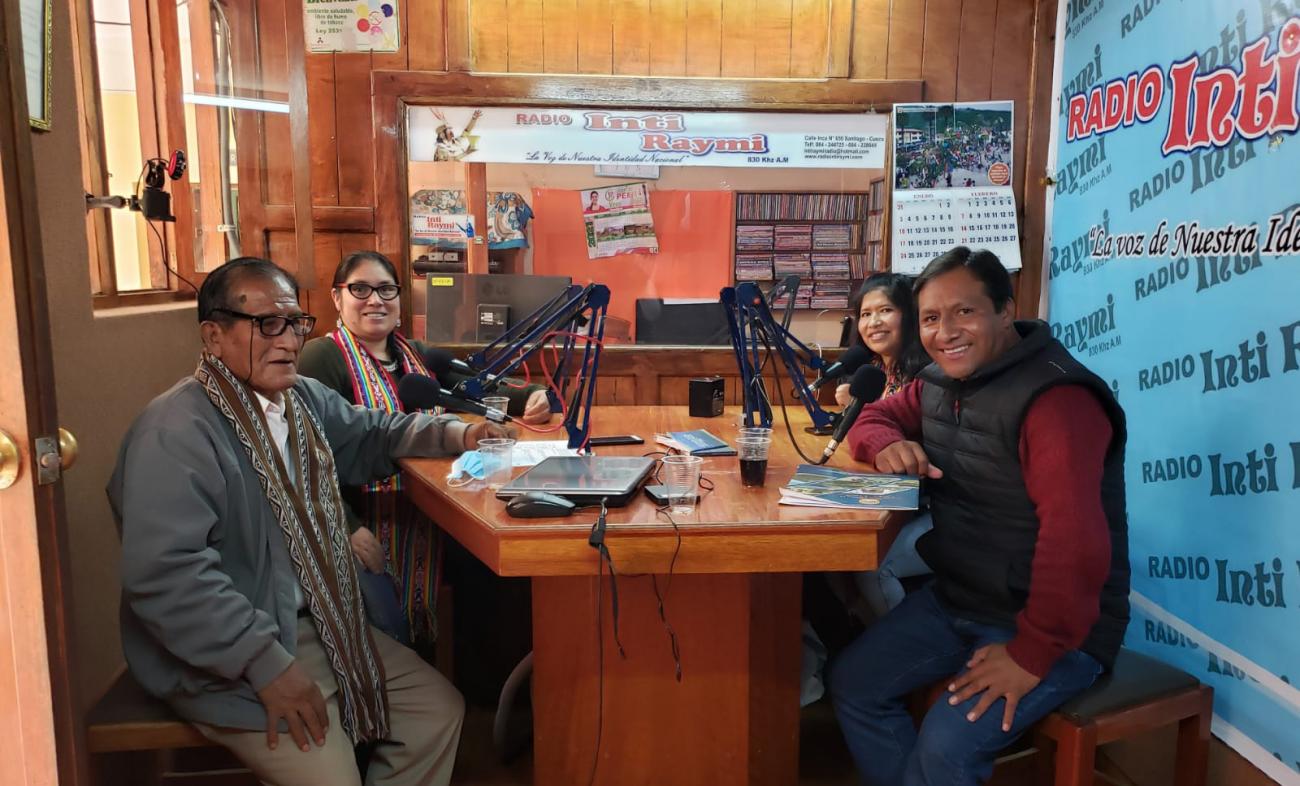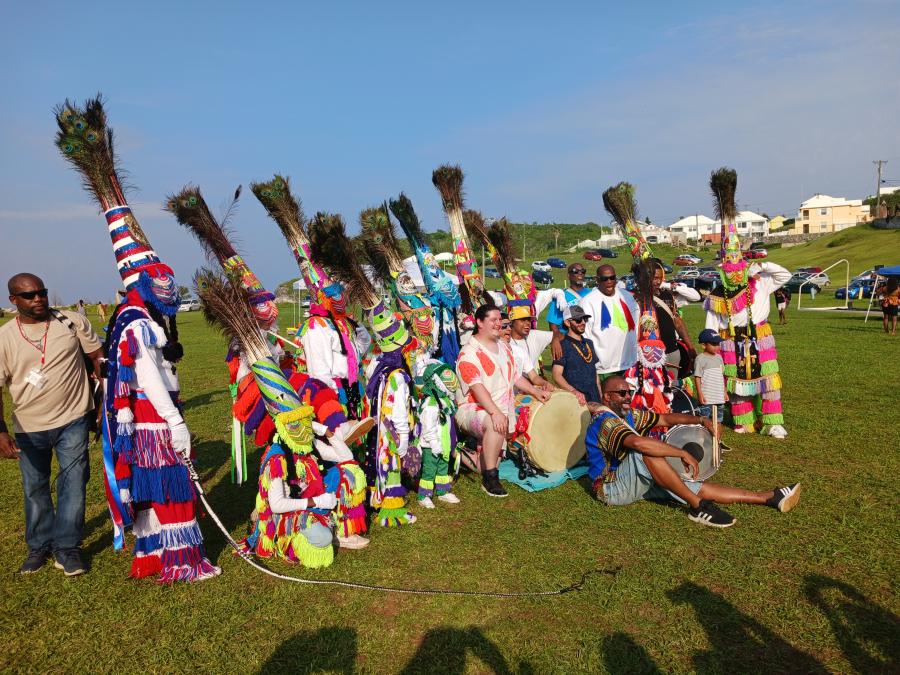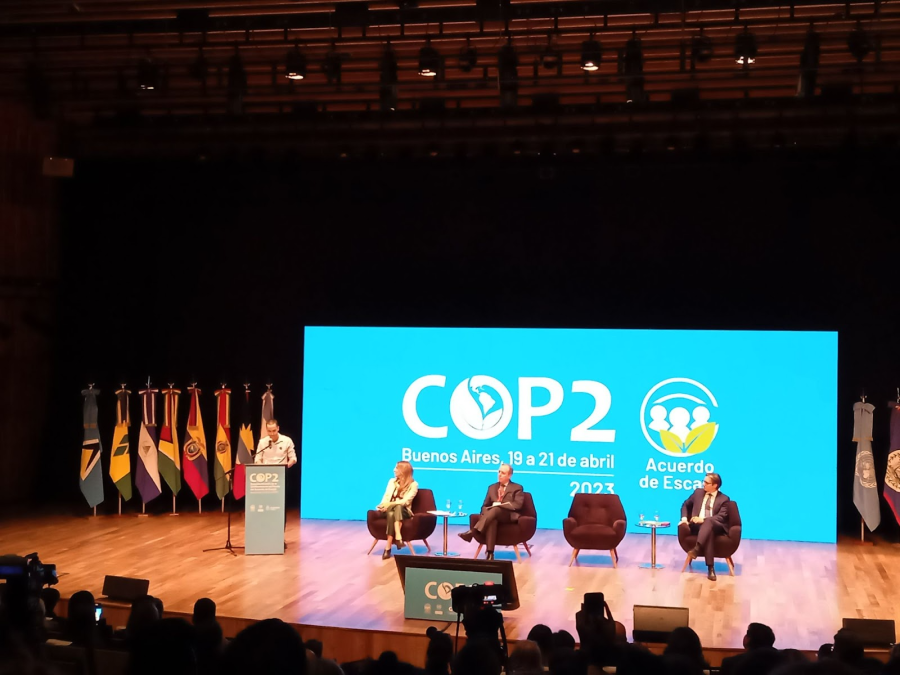
February 13, 2022, marks the 11th annual celebration of World Radio Day as proclaimed by UNESCO. This year's theme is "Radio and Trust."
On the first celebration of World Radio Day in 2012, former UN Special Rapporteur on the Rights of Indigenous Peoples James Anaya (Apache and Purépecha) emphasized the importance of community radio for the world's Indigenous Peoples, "Radio has been a fundamental means for Indigenous Peoples to maintain their languages and to exercise and defend their rights."
Cultural Survival continues to work to implement Indigenous Peoples' right to establish their own self-determined communication platforms as enshrined in Article 16 of the UN Declaration on the Rights of Indigenous Peoples. In 2021, we supported 57 media projects in 23 countries, totaling $340,500. We also trained 52+ Indigenous women in radio production and journalism. Our Indigenous Community Media Youth Fellowship program supported 25 youth in gaining new audiovisual and media leadership skills. Our Indigenous Rights Radio program produced and distributed over 623 urgent PSAs related to COVID-19 in 140+ Indigenous languages to over 1,200 stations in 69 countries since the start of the pandemic. Our advocacy for Indigenous community media focuses on pushing for the democratization of radio frequencies by changing telecommunication laws in countries where Indigenous Peoples want to have their own radio stations and where they face criminalization for claiming their right to freedom of expression, such as in the case we just won at the Inter-American Court of Human Rights related to community radio stations in Guatemala.
In many parts of the world, despite the risk of police raids, jail time, threats, and even death for community journalists, community radio stations serve a vital function by distributing information about important news and educational programming like emergency disaster relief, voter registration, and public health campaigns. The power of radio reaches even the most rural areas, providing Indigenous communities with access to programming in their own languages and serves as a voice that promotes their cultures, traditions, and belief systems.
Support Indigenous Community Radio Today!
Celebrate a Historic Win for Indigenous Community Radio!
 On December 17, 2021, the Inter-American Court of Human Rights announced its decision in the case Indigenous Maya Kaqchikel Peoples of Sumpango vs. Guatemala, declaring the Republic of Guatemala “internationally responsible for the violation of the rights to freedom of expression, equality before the law and participation in cultural life” of Indigenous Peoples. This decision is historic in protecting Indigenous Peoples' rights to expression and culture and promoting pluralism in media. The Court ordered the Guatemalan government to allow Indigenous broadcasters to operate "freely and without interference" and to legalize community radio stations. Learn more.
On December 17, 2021, the Inter-American Court of Human Rights announced its decision in the case Indigenous Maya Kaqchikel Peoples of Sumpango vs. Guatemala, declaring the Republic of Guatemala “internationally responsible for the violation of the rights to freedom of expression, equality before the law and participation in cultural life” of Indigenous Peoples. This decision is historic in protecting Indigenous Peoples' rights to expression and culture and promoting pluralism in media. The Court ordered the Guatemalan government to allow Indigenous broadcasters to operate "freely and without interference" and to legalize community radio stations. Learn more.
Apply for a Community Media Grant Today!
Check Out Our Radio Partner Map!
Since 2017, Cultural Survival has supported over 255 radio and media projects in 23 countries through our Community Media and Indigenous Rights Radio programs.  Desde 2017, Cultural Survival ha apoyado más de 255 proyectos de radio y medios en 23 países a través de nuestros Programas de Medios Comunitarios y de Radio De Derechos Indígenas.
Desde 2017, Cultural Survival ha apoyado más de 255 proyectos de radio y medios en 23 países a través de nuestros Programas de Medios Comunitarios y de Radio De Derechos Indígenas. 
Because Knowledge is POWER
Cultural Survival continues to celebrate the power of radio by representing diverse voices and perspectives in the Indigenous world through our ever-expanding Indigenous Rights Radio audio program library.
 New Radio Station in Kenya Will Help to Revitalize Rendille Language and Culture
New Radio Station in Kenya Will Help to Revitalize Rendille Language and Culture
A new community radio station is set to launch in Kenya with the help of a grant from Cultural Survival’s Indigenous Community Media Fund as well as funding from Cultural Survival’s partner WACC.
 Radio is a Powerful Tool that Protects Indigenous Knowledge
Radio is a Powerful Tool that Protects Indigenous Knowledge
Khwedam Radio in Namibia was started in 2019 with support from Cultural Survival as an internet radio station. In this radio program, we hear about the progress of the station, as well as some of the challenges experienced by the management of the station.
 Radio Promotes Diversity
Radio Promotes Diversity
Radio is a powerful medium for celebrating humanity in all its diversity. For Indigenous Peoples in many countries, radio is the most accessible platform to have their say in their native languages. Radio, therefore, is a fundamental means of communication for Indigenous Peoples to maintain their languages and to exercise and defend their rights. Moreover, radio is a means of ensuring the right to information in all sectors of society. For Indigenous Peoples, however, access and ownership of the radio station, and means of production of information in our languages, are essential.
 Día Mundial de la Radio
Día Mundial de la Radio
En el marco del Día Mundial de la Radio, Cultural Survival ha preparado un programa especial sobre la importancia de la radio para los Pueblos Indígenas, y cómo por medio de ella han promovido y defendido sus derechos al territorio, la cultura, los idiomas, entre otros. Los invitamos a escuchar y aprender con nosotros sobre este medio de comunicación tan importante. ¡Que vivan las radios comunitarias Indígenas!  Participate in a Hindenburg World Radio Day FREE Audio Editing Training.
Participate in a Hindenburg World Radio Day FREE Audio Editing Training.

Top photo: Radio Inti Raymi’s Rimayninchis Program in Cuzco, Peru.




